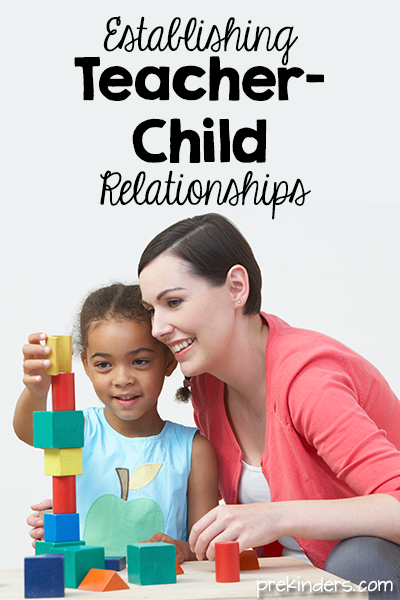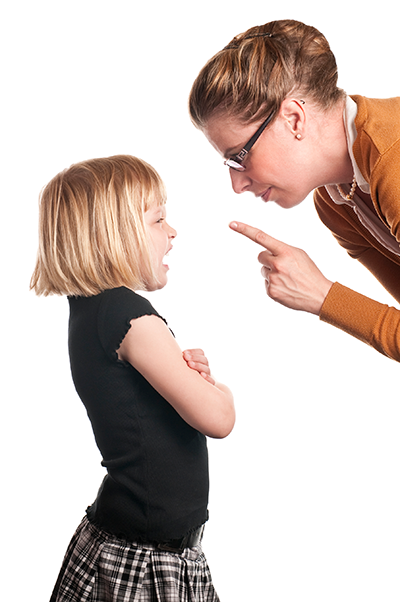Establishing relationships with your students is the most important factor in managing behavior in the classroom. When an individual child knows you love them, it will become easier to guide them towards positive behavior. This is important with all children, but particularly with children with the most challenging behaviors.

This post is based on the book Beyond Behavior Management: The Six Life Skills Children Need, by Jenna Bilmes, and is part of the Challenging Behaviors Book Study.
There may be times when you have to completely change your attitude towards a very challenging child. You have to decide that you like this child, even love this child, and show the child that you do. When you do that, you will see a change in the child’s attitude towards you and a different response toward your directions and rules. Does that mean all your problems will be solved? That your most challenging child will suddenly become perfect and listen to whatever you say, follow every rule, be nice to every child? No, but it will make a huge difference.
Your actions, your attitude, and your words have to show that you love the children as individuals (not just the class as a whole).
“Children learn to behave when they have good relationships with adults. Early learning for children is relationship based.” — Jenna Bilmes
Positive relationships are important for success in school and life. Children need to see teachers as supportive and helpful. They need adults to help them feel safe and secure, loved and cherished, and feel like they belong. Teachers do not need to be a child’s friend or peer.
Tips on helping teachers establish relationships with children:
Remember that some families may have different expectations for how children interact with adults, which can be confusing for a child. Some families don’t encourage eye contact. Some families encourage children to question and negotiate. Help children and families understand school expectations.
Use language that helps children see you as a mentor rather than opponent.
Get to know children well. If a child’s personality clashes with yours, find what endearing qualities the child has and don’t fall into an unhealthy relationship.
Connect with children during center time. Have personal conversations with children without always using “teacher talk”. For example, you don’t always have to ask children how many blocks they used or the shape of their sandwich. Just have a casual conversation.
Be affectionate even when children are showing challenging behaviors. Don’t use affection as a reward for good behavior. “Treating children with love and affection, regardless of their behavior, makes a teacher’s job easier.” — Jenna Bilmes
Show children that you will keep them safe. When a child is out of control, keep them close to you, hold their hand. Let them know you won’t let them hurt others, and won’t let others hurt them.
Mean what you say. Be consistent with your words and actions. “It’s not a kindness to give children three chances. It’s confusing.” — Jenna Bilmes
Teach children that relationships can be repaired. This may mean apologizing to them if you spoke to them harshly, or teaching them how to repair relationships with others.
Speak quietly to the child so only the child can hear what you’re saying.
Help children fix their mistakes.
Greet children as they come to school and say good-bye at the end of the day.

Children who lack positive relationships with adults.
Children who do not have positive relationships with the main caregivers in their lives display these characteristics: they are self-sufficient, unresponsive to adults, and view adults as useless or as peers. Adult praise or displeasure has no effect on them.
What I found surprising in the book was that these children are very friendly with adults who are total strangers (such as classroom visitors). Many people might see that as a positive, when it’s actually unhealthy behavior because the children are drawn to strangers, but do not have close relationships with the caregivers in their lives.
How to Participate in the Book Study
We want everyone to participate in the book study. You don’t need a blog, just add your comments in the comment section below this post. Please share your personal stories and ways you’ve helped build teacher-child relationships. What will you try next year?
Follow the Book Study using this Guide here at PreKinders, and read the Book Study FAQ at Pre-K Pages to answer any questions you may have about how the book study works.
Grad Credits
You can earn grad credits for following the book study! To register, go here to Course Registration, and read the Course Requirements here.
Book Study Links
As each post in the Book Study is published, a link will be added right here below:
